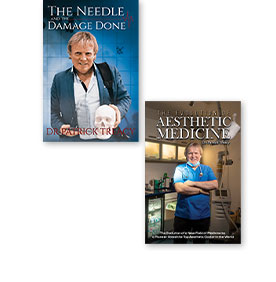
Rocking in Gibraltar
One of the most interesting people I met on the Rock was Dr Cecil Isola, a sixty-three-year-old politician, whose wife was Irish. After many years of service as port medical officer, he was getting too old for climbing the sides of ships in the middle of the night to see sick patients on board, and had handed over this duty to the junior doctors in St Bernard’s Hospital.

On ships in Gibraltar
One evening, I was standing on the balcony, enjoying the fiery sunset, my beeper sounded for an emergency. It was a call from the harbour master, asking me to attend a possible heart attack aboard a Yugoslavian tanker. We all knew the dangers of climbing on board these ships late at night with only a small torch to light the way. However, it was also quite a lucrative business, which we all participated in, and we had a small car at our disposal, which I drove down to the Waterport Gate, where a pilot boat was waiting to take me out to sea.
‘What is it?’ I inquired in Spanish.
‘Chest pain,’ the captain replied, indicating that we had better hurry.
The craft thrust its way into the darkness, and before long we were alongside the tanker. It was a calm, starry night, perfect for alighting, and after the crew had thrown down ropes to haul up my equipment, I climbed aboard. The vessel’s captain was first to meet me. He walked awkwardly, as if his leg had been injured, and ushered me into a little room.
‘This young man is very sick, and I don’t want him aboard my vessel,’ he began. ‘I want you to find bed for him in the hospital – please, you find bed for him?’
With a gesture, he signalled for me to sit down again. From the cupboard, he produced a bottle of Johnnie Walker whiskey and filled up two glasses.
‘Zivjeli,’ he said, handing one to me. ‘Please you find my man a bed, we will sail tonight.’
After we emptied our glasses, we descended into the cramped lower part of the ship, passing through different stairwells until we reached the patient. Some others emerged from the shadows, eager to see what was happening. I thought it unusual that the captain allowed them to congregate in this fashion and searched my bag for a stethoscope – my gavel, my truncheon of authority. The patient began writhing and spoke to me in a faint, apprehensive voice.
‘Ulcera,’ he said, pointing to his stomach area.
I noted how his flickering eyes were fearful as he grasped my shirt, as if his life depended on my getting him out of there. He spoke to me in a tired, pleading voice as I felt his abdomen. On examination, nothing seemed to add up. His basic observations were normal, and his pulse rate ticked along at normal speed. Although I didn’t want to miss a perforated ulcer, my sixth sense made me consider whether I was being subjected to an elaborate hoax. The captain seemed to share the patient’s anguish, and he signalled for me to take the patient ashore. I thought about it for a while and then said to a stretcher party he had assembled, ‘OK, we’ll have to take him to the hospital.’
The crew members lifted him onto the stretcher, and I followed them to the gangway. On the way, the captain turned to me and said, ‘When you are finished, you fly my man to Dubrovnik.’
‘Yes, captain,’ I replied cautiously. ‘But what’s his real problem?’ The captain took me back to his cabin and, in the dim light, opened his coat and offered me another glass of whiskey.
‘He is a Croatian on this Serbian ship. Yesterday his family were killed, and he wants to go back to fight in the war,’ he said, shaking my hand and thrusting the remainder of the bottle of whiskey into my red life jacket. ‘You see, I am also Croatian.’
Post Views : 477